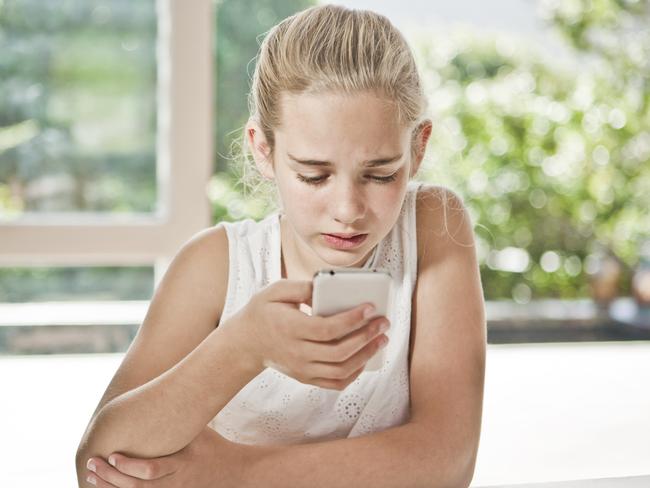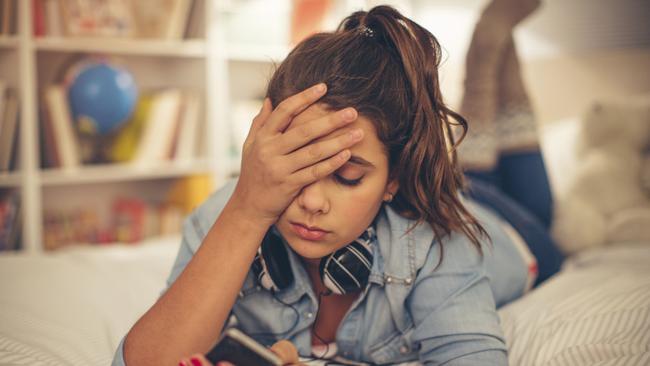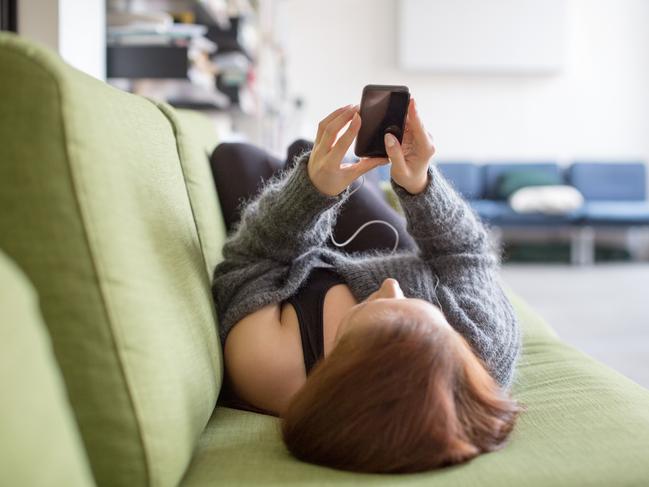Teachers will be trained to handle sexting incidents and how to gather evidence
The rise of the ‘send nudes’ culture is so rife in schools the federal government has been forced to step in with a guide for principals. READ THE FULL REPORT
News
Don't miss out on the headlines from News. Followed categories will be added to My News.
EXCLUSIVE
THE rise of the ‘send nudes’ culture is so rife in schools the federal government has been forced to step in, with the eSafety Commissioner and the AFP developing a guide to help principals navigate the epidemic among students.
The guide, is available to all schools online, recommends all teachers be trained in how to handle sexting and warned to not ‘deliberately view the material’ and to learn how to manage the device and when to engage police.

The guide will help principals deal with the sharing of explicit material such as “sexting, naked selfies or nudes” and will improve the quality and number of reports schools provide to police; giving guidelines on managing evidence to help the investigation process. It is in line with the recommendations of the Royal Commission into Institutional Responses to Child Sexual Abuse, which said schools were often failing to investigate and report incidents, and is part of a larger body of work to help schools create child safe environments.

eSafety Commissioner Julie Inman Grant said it helps keep information consistent within a fragmented education system.
“Some schools do this well and some don’t. We want to make these tools available so they know where to go to get assistance,” she said.
MORE NEWS
Calls to scrap ‘pointless’ school report cards
Kids groomed on dangerous chat site
After school care services failing Sydney kids
High-sugar kids’ snacks named and shamed

Of the explicit image sharing reports made to eSafety, one third involve children under the age of 18. The commission found a further nine out of 10 young people thought that sexting happened among their peers — “as a kind of courtship behaviour” – and 1 in 3 had experienced sexting.
Ms Inman Grant said sexting was a “new kind of peer pressure” that had redefined how young people conduct relationships and that many young people now send nudes as ‘second base’ before kissing.
Australian Federal Police Acting Manager Child Protection, Marina Simoncini, said: “Creating, sharing, and storing naked or partially naked material of a person under the age of 18 years old can be an offence and may be considered child sexual abuse material, even if a young person has taken or produced the material themselves.
Educator Michelle Mitchell, who teaches healthy relationships in the nation’s high schools, has seen nude selfie incidents in children as young as 11 and said police usually only get involved when significant bullying is also a factor.
“For example when someone passed on a nude in an attempt to punish or hurt the other person,” she said.
The guide, developed by the eSafety Commissioner with the Australian Federal Police-led Australian Centre to Counter Child Exploitation (ACCCE) and the ThinkUKnow program includes who to involve, where to report, how to deal with the material, and when to consult with police.

It gives specific advice on how to deal with the evidence including not deliberately viewing the material.
It advises to do not send it to yourself for evidence, to secure the device if possible within the presence of a witness and to try and obtain the passcodes from the student.
President of the Australian Secondary Principals’ Association Andrew Pierpoint said it was mainly a problem in high schools but is now emerging in the later years of primary.
“We need the community together to solve it, often the images are sent at 2am in the morning on the weekend but the consequences are at 10am the next morning at school,” he said.
Minister for Communications, Cyber Safety Paul Fletcher said the guide is an important practical tool for educators to help keep children safe online.
“It’s never been more important to equip our teachers with information to mitigate potential online harms,” he said.
